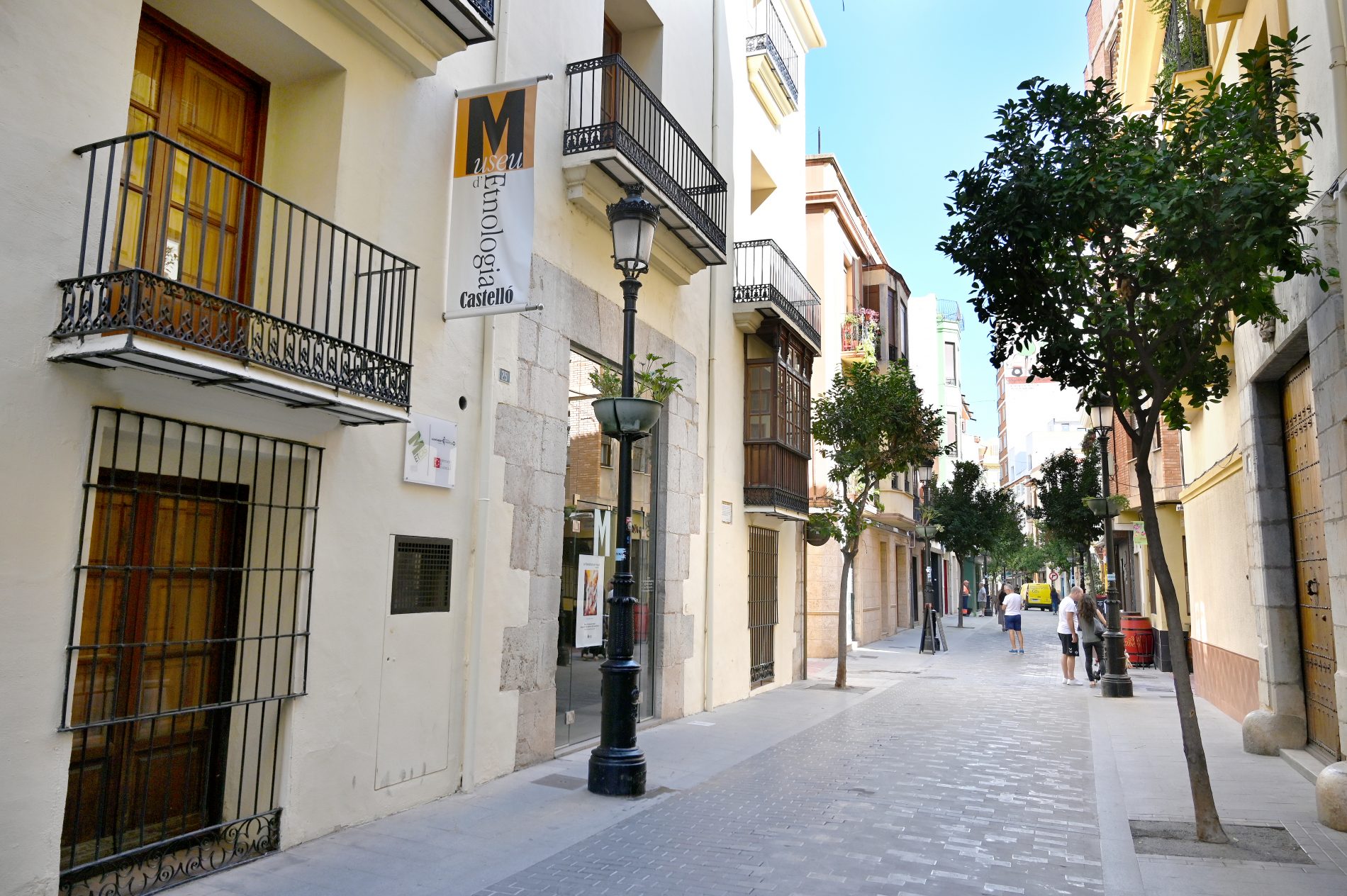“LES NORMES DE CASTELLÓ” Old House site of don Evaristo Escalona, later the family Martí Matutano, the building would swell the Castellón history pages since 1931, as the headquarters of the Castellon society of culture. It was in one of its rooms, on 21 December 1932, when five hundred Valencian linguists and intellectuals gathered to fix with the orthographic rules of the Valencian. Maximiano Alloza, Salvador Guinot, Josep Pascual Tirado, Juan Bautista Porcar, Lluís Revest, Angel Sanchez Gozalbo Enric Soler Godes i were among them. It was around this desk, replete with prominent notables of the Valencian letters, which were going to approve the “Bases per l’ Valencian spelling movement” more known as “Normes de Castelló” or “You Normes del 32,” instrument of orthographic codification of the language to the Valencian Community
Cross the doors of number 25 of the calle Caballeros, the Matutano House, supposed to open an indelible page in the history and traditions of Castellón. And it is that few areas of our province can be expected to hold so much history within its walls as the Ethnological Museum of Castellón. In whose first floor is signed Les Normes de Castelló, in 1932, or that was headquarters for years in the collection of the Museum of fine arts. Reasons enough so that on June 26, 2009, the City Council of Castelló and the Council reopened enclosure after a major refurbishment.
The ethnological collection municipal impeller is Rafael Ribés Pla who, with the sponsorship of the municipal government, created in 1985 the Ethnological Museum which was located in the Hermitage of San Jaime de Fadrell. To the Castellón owe the merit of bringing together, thanks to the generosity and the interest of numerous neighbors of Castellón and agrarian societies, a collection that exceeded two thousand parts and were exhibited in the rooms of the mentioned Chapel until 2007. Twenty-five years earlier, in 1982, the then Mayor Antonio pulled had promoted the restoration and rehabilitation of the building, under the architectural direction of Francisco Segarra and historic coordination of own Ribes Pla. Practically since its opening, the Museum of Fadrell would be small for the vast municipal collection and began to think about the opening of a building in conditions that could accommodate all parts to show them to the public interested in its study and analysis.
The relationship of the Municipal Museum of Ethnology and the Council began to take shape in 2002, when the Board of Local Government, under Mayor of José Luis Gimeno, agreed to request the transfer of the property from the street of Knights to the provincial institution. An ambitious project that today is a reality and that, surely, will become the best legacy for future generations. The situation of the House, as multi-family housing lasted until 1978, moment in which the provincial Council acquires the building to install the Museum of fine arts in Castellón. A venue that was opened on March 8, 1980, after the obvious renovations needed the enclosure, and that he would accommodate the provincial collection which until that time was stored in the basement of the provincial Palace. The municipal collection boasts more than 2,500 pieces, notably a funeral plaque of medieval times, while the rest of objects belong at the end of the 19th century.
On the first floor of the Etnològic Museum, are three rooms dedicated to urban birth of our province, with activities ranging from machines to grind to costumes, both labour party. On the second floor, dedicated to our region and culture, notably, fundamentally, farming implements, but also antique furniture of farmhouses and country houses, individual gaiatas or clothing may be seen. The visitor will also find unique pieces such as flags of the Carlist Wars, and the oldest religious ornaments of Castellón. Another great attraction is its magnificent collection of toys from the beginning of the 20th century.
The third floor is dedicated to the House, domestic and intimate spaces, and the Castellón’s own clothing. Room 1 together with the spaces more open house, like salon, dining room, game room, the room cleaning or the professional office where the owner exercised their profession independent in the House, as it was the case with doctors and lawyers. The collection presented corresponds to parts with a chronology of late 19th century and mid-20th.

